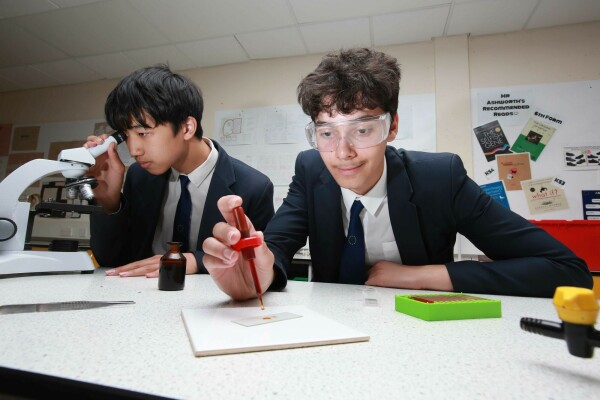Environmental Science and Societies
Intent
Environmental systems and societies (ESS) is a fascinating, dynamic interdisciplinary subject that takes 21st-century challenges and socio-environmental real-world issues and looks at them through the lens of human societies and the interrelationships of the natural world: biosphere, atmosphere, hydrosphere and lithosphere. Various disciplines from the sciences and social sciences come together in ESS. These include ecology, economics, chemistry, geography, design, psychology, physics, law, philosophy, anthropology and sociology. The knowledge, concepts, skills and approaches from these disciplines are combined to enable ESS to be studied from a unique and integrated perspective. ESS is a dynamic course firmly grounded in the real world, and focuses on the interactions between individuals, societies and biological processes in both time and space. Our curriculum is designed to encourage curiosity and passion about the fragility of our environment and the collective responsibility of individuals and societies.
Interdisciplinary learning in ESS ensures that students acquire skills that underpin sociocultural, socio- economic and scientific methodologies.
Environmental systems and societies (ESS) aims to empower and equip students to:
1. develop understanding of their own environmental impact, in the broader context of the impact of
humanity on the Earth and its biosphere
2. develop knowledge of diverse perspectives to address issues of sustainability
3. engage and evaluate the tensions around environmental issues using critical thinking
4. develop a systems approach to provide a holistic lens for the exploration of environmental issues
5. be inspired to engage in environmental issues across local and global contexts.

Implementation
The ESS course has at its heart the intention of providing students with the capacity to understand and make informed decisions regarding the pressing environmental issues.
The students will study a concept-based syllabus that promotes holistic thinking about strategies to address environmental and society problems. They will learn the importance of making local and global connections to develop an understanding of sustainability issues.
Students will be actively engaged and encouraged to be curious, to enhance their critical thinking and problem-solving skills through inquiry-based learning.
Students will study eight different topics, each topic covering various key concepts. Practical and scientific activities are embedded within the theoretical topics, enhancing learners’ understanding.
Learners will carry out a collaborative sciences project (CSP) which gives students the opportunity to work together in an interdisciplinary team. They work towards a common goal related to a real-world issue, pursued through the lens of the scientific method. In the project the emphasis will be on the experience of collaborative problem-solving, researching Real-world issues and possible solutions. They will practice their communication skills, collaborative work and writing essays.
Impact
Students will:
· Acquire essential knowledge and understanding of the environmental systems and issues.
· Apply the knowledge, methodologies and skills to analyse environmental systems and issues at a variety of scales.
· Develop confident ability to apply knowledge learnt to familiar and unfamiliar situations.
· Develop secure application of specialist vocabulary.
· Create innovative solutions to solve environmental issues.
· Develop competence and confidence in a variety of practical skills, the use of scientific methods, mathematical and problem-solving skills
· Explore current events with connections to issues, concepts, systems and models.
· Enhance critical, creative thinking and the development of argument characteristics of individuals and societies subjects.
· Promote students’ interest in and enthusiasm for the subject, including an interest in further study and careers associated with the subject.
